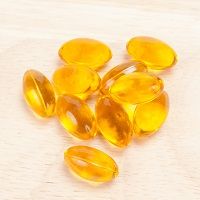Article
Vitamin D Levels Influence HIV Transmission
Author(s):
Since vitamin D plays an important role in immune system responses, it may also be crucial in curtailing the deadly epidemic of the human immunodeficiency virus (HIV).

Since vitamin D plays an important role in immune system responses, it may also be crucial in curtailing the deadly epidemic of the human immunodeficiency virus (HIV).
Lead author Nina Jablonski, and her colleagues from Pennsylvania State University (Penn State) discovered that vitamin D could be the wallet-friendly answer to inhibiting the infection from replication. The team specifically studied two populations in Cape Town, South Africa where 18.1% of the population ages 18 to 49 are infected with HIV, according to the Centers for Disease Control and Prevention. Several potential contributors to vitamin D levels — including diet and genetics – were taken into consideration as well.
“Cape Town, South Africa, has a seasonal ultraviolet B regime and one of the world’s highest rates of HIV-1 infection, peaking in young adults, making it an appropriate location for a longitudinal study like this one,” Jablonski, an Evan Pugh professor of anthropology at Penn State, said in a news release.
Two ethnic groups with darker skin, consisting of 50 people each, were included in the research in order to determine if skin pigmentation influenced vitamin D levels.The first group were of Xhosa ancestry who migrated from close to the equator and the second being of Cape Mixed ancestry consisting of Xhosa, Khoisan, European, South Asian, and Indonesian backgrounds. It was noted that all participants were HIV negative and not using sunscreen.
“Seasonal decline in UVB radiation, darkly pigmented skin, low nutritional vitamin D intake, and genetic variation can increase risk of deficiency,” the authors wrote in the Proceedings of the National Academy of Sciences.
The team measured UVB sun exposure in Cape Town during the summer 6 weeks post solstice, February 2013, and winter 6 weeks post solstice, August 2013.The researchers found that vitamin D deficiency during the winter months was apparent in both groups with the trend being more prevalent in females. Deficiency was also associated with higher HIV replication. In the next phase, 30 participants in the Xhosa group were given 6 weeks work of vitamin D₃ pills which resulted in 77% reaching ideal vitamin D levels.
“High-dosage oral vitamin D₃ supplementation attenuated HIV-1 replication, increasing circulating leukocytes, and reversed winter-associated anemia,” the authors discovered.
The findings suggest that high UVB exposure was linked to sufficient vitamin D levels and therefore, could slow the progression of HIV and promote immunity. Furthermore, it was revealed that diet and genetics do not play significant roles in the virus’ replication.
The team concluded that vitamin D₃ supplementation may be an inexpensive way to decrease the spread of HIV.





